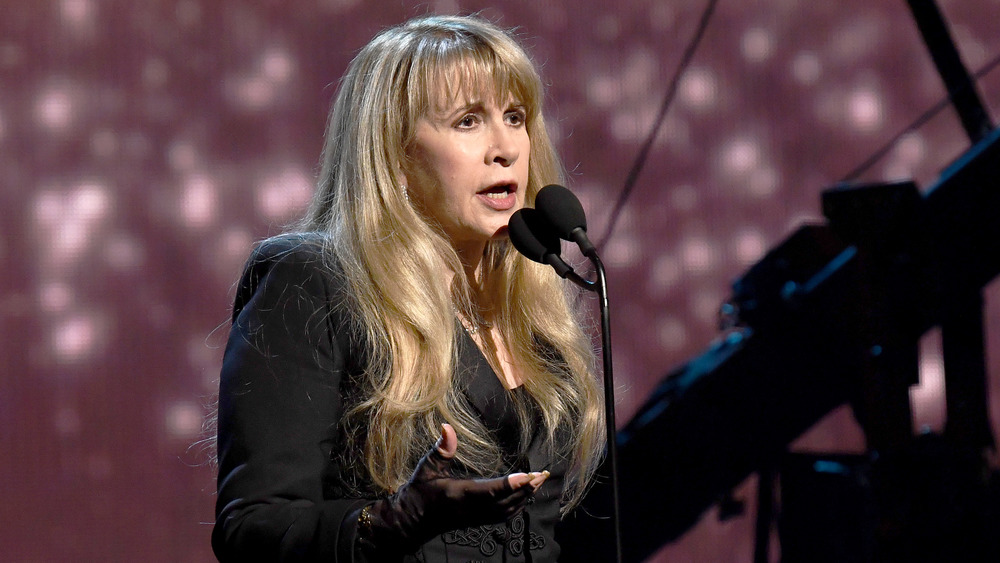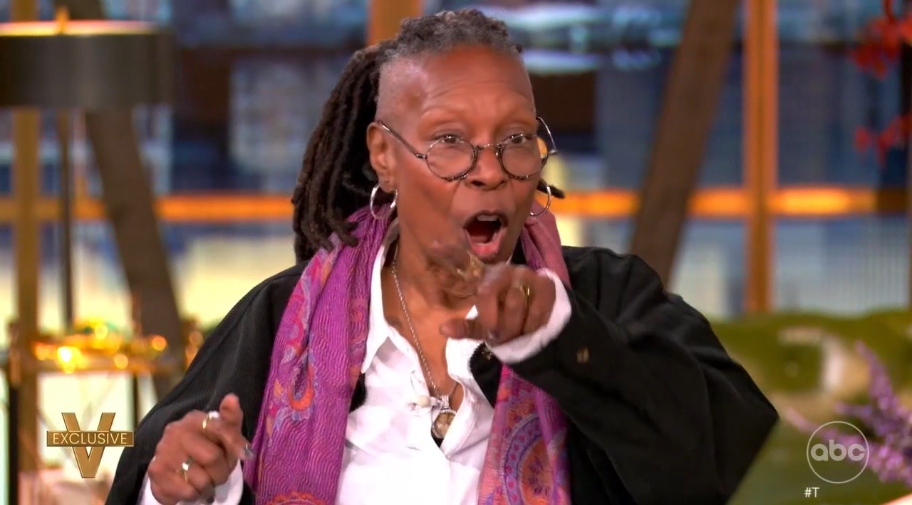JUST IN: Whoopi Goldberg Mocked Stevie Nicks on Live TV — Then Came Seven Words That Left the Entire Studio Speechless .m
“Seven Words That Stopped the Room”: Stevie Nicks Silences Whoopi Goldberg in a Moment That Television Won’t Forget
Morning television thrives on banter — on that caffeine-fueled friction between personalities, where humor meets honesty and sparks turn into ratings. But Tuesday’s broadcast delivered something different: not banter, not noise, but a moment of pure, unforgettable stillness.
It happened mid-segment, when Stevie Nicks — the ethereal queen of rock and living emblem of resilience — met Whoopi Goldberg’s sharp tongue with seven words that stopped an entire studio in its tracks.
What began as another roundtable about fame, legacy, and the shifting sands of cultural relevance suddenly turned into live TV legend.
The Comment That Cut the Room Cold
It started with Goldberg, casual but pointed, her tone slicing through the morning chatter like a headline.
“She’s just using her past glory for pity and fame,” she said, with the kind of conviction that usually earns applause or a quick laugh.
But this time, the air didn’t move.
Nicks didn’t flinch. Didn’t frown. Didn’t even look away.
She sat there — still, serene — her hands folded neatly in her lap, her silver rings catching the stage lights like small moons orbiting her composure. Her face, framed by that iconic cascade of golden hair, was part serenity, part storm.
The silence that followed was not empty. It was electric — a coiled pause that felt like something was coming, something inevitable.
The Shift
When Goldberg continued — another quip, another jab — the energy shifted.
Nicks leaned forward slightly, her bracelets chiming together, the sound so soft it might’ve been mistaken for a sigh. But her eyes — calm, steady, dreamlike — locked onto Goldberg’s, and the room seemed to shrink to the space between them.
And then, it happened.
Seven words.
No more. No less.
Her voice — husky, melodic, unmistakable — rolled out with the kind of quiet authority that only time and truth can forge.
Whatever she said (the show later bleeped the exact line for broadcast standards), it wasn’t cruel. It wasn’t loud. It was final.
The Silence That Followed
The cameras kept rolling, but no one on set dared whisper “continue.”
Somewhere backstage, someone exhaled too loudly, and it echoed like thunder.
At the table, a guest shifted uneasily. But Goldberg? Nothing. No laughter. No comeback. No clever pivot.
Just one slow blink, a glance downward, and silence — the kind that doesn’t end when the cameras cut.
For the first time in over a decade of live television, the veteran host known for her quick wit and ironclad confidence sat utterly still — not in defeat, but in awe of the moment’s gravity.
The Weight of Survival
What made Nicks’s reply resonate wasn’t the words themselves — it was the life behind them.
Here was a woman who had lived through every storm rock and roll could throw: heartbreak, feuds, addiction, reinvention, and the unrelenting gaze of fame.
She didn’t need pity. She didn’t need borrowed glory. She was the living proof of endurance — a career and a soul built not on nostalgia, but on persistence.
As one audience member whispered afterward, “It wasn’t just a clapback. It was her whole life in one sentence.”
The Internet Reacts
Within minutes, the clip went viral.
Hashtags like #StevieSevenWords and #StudioSilence dominated social media feeds, with fans replaying the moment frame by frame.
“Stevie Nicks just gave a masterclass in grace under fire.”
“Seven words. A lifetime of power.”
“That wasn’t an argument — that was poetry.”
Even those unfamiliar with her music found themselves drawn in by the emotional weight of it.
One viewer wrote: “Whoopi tried to reduce her legacy, but Stevie reminded everyone that legends don’t fade — they deepen.”
A Cultural Echo
By afternoon, the conversation had shifted from gossip to analysis. Music historians, journalists, and culture critics began weighing in.
“Stevie Nicks has always embodied resilience,” said Dr. Laura Kendall, author of Rock’s Feminine Mystics.
“From the chaos of Fleetwood Mac to her solo reinvention, she’s turned survival into an art form. What she said on live TV wasn’t just a defense. It was a thesis statement.”
Indeed, Nicks’s reply tapped into something deeper than celebrity friction. It was about age, art, and the burden of being a woman in the public eye long after the spotlight has moved on.
She didn’t fight back to win. She spoke to exist — fully, fiercely, unapologetically.
Goldberg’s Silence
In the hours that followed, Goldberg — known for her humor and quick reflexes — declined to comment on the moment.
ABC released a carefully worded statement calling the segment “a spirited and respectful discussion among cultural icons,” but by then, the story had already taken on a life of its own.
It was no longer about a television exchange. It had become something larger — a cultural parable about legacy, survival, and the quiet power of self-possession.
More Than a Clapback
What separated Nicks’s response from a thousand other viral “TV moments” was its restraint.
There was no raised voice, no sarcasm, no eye-roll. Just a measured, steady statement, delivered with the weight of someone who’s lived enough to know that calm is the ultimate authority.
It wasn’t a performance. It was presence.
It was proof that sometimes power doesn’t roar — it whispers. And in that whisper, it can still shake the walls.
A Final Note
Stevie Nicks didn’t win an argument that morning. She didn’t humiliate anyone. She didn’t even raise her tone.
What she did was something rarer — something that transcends the fleeting nature of television drama.
She distilled five decades of artistry, pain, triumph, and survival into seven words that froze a studio, silenced a veteran host, and reminded millions watching that legends don’t need to prove anything.
They just need to speak — and the world listens.
Because the truth about icons is this:
They don’t live in their past.
They are the present.
And sometimes, they only need a sentence to prove it.


:max_bytes(150000):strip_icc():focal(511x0:513x2)/stevie-nicks-1024-1f9fd34b76da41cea63f7c3077da30cf.jpg)



